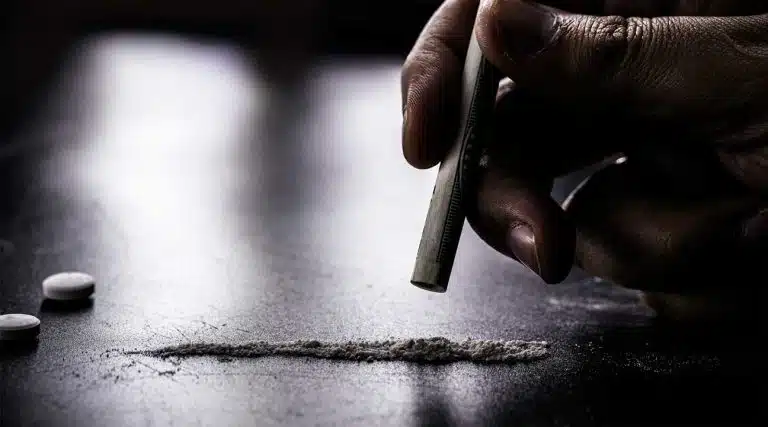Smoking Percocet, Snorting Percocet, & Injecting Percocet

Percocet, a prescription opioid, is meant to be taken orally. It is a combination of oxycodone and acetaminophen, which can treat moderate to severe pain in the body.
Several methods of drug abuse exist with Percocet. Three common methods—smoking, snorting, and injecting—involve crushing or melting the drug and using it in ways other than directed. All of these methods are forms of substance abuse and carry significant risks.
Three Methods Of Percocet Abuse
As a prescription painkiller, Percocet comes in tablets. Each tablet contains more acetaminophen than oxycodone. However, oxycodone is an opioid and the more powerful active ingredient of the two.
Some methods of Percocet abuse involve separating oxycodone from acetaminophen. While this may reduce the chances of acetaminophen complications, it’s still a form of drug abuse.
Prescription drugs should always be taken as directed, and changing how the medication is taken (along with the amount taken) risks addiction, dependence, and other problems.
Percocet abuse can lead to greater pain relief or more intense highs, but all three methods bypass normal intake, allowing the drug to bind to receptors in the body faster.
Snorting Percocet
Snorting Percocet can be as simple as crushing tablets into powder and inhaling them through a straw. This allows one to feel the effects of the drug faster, and can also be done easily. This increases the drug’s abuse potential.
Injecting Percocet
A person looking to inject Percocet may want to avoid the high intake of acetaminophen. They may use a technique known as cold water extraction (CWE) to separate the active ingredients.
Cold water extraction will filter Percocet into liquid oxycodone and acetaminophen. The liquid oxycodone can then be put into a syringe and injected.
Smoking Percocet
Smoking Percocet usually involves placing a tablet on tinfoil. The foil is then held over a heat source, such as a stovetop. This melts the tablet and creates vapors that are inhaled through a straw.
Percocet Abuse Health Risks
Percocet abuse may cause severe side effects. When abused, it’s often taken in higher doses than normal drug use. Abuse of Percocet may cause constipation, low blood pressure, changes in heart rate, and other side effects.
Each method of abuse has its own unique health risks, which affect the part of the body where the drug is taken.
Health Consequences Of Smoking, Snorting, Or Injecting
Snorting or smoking Percocet can put stress on the respiratory system. Inflamed lungs, lung scarring, and heart issues may occur. If snorted, nosebleeds and nasal septum perforation (holes in the nasal wall) are also possible.
Injecting Percocet may cause collapsed veins, scarring of injection sites, increased risk of infectious diseases, and death of arm or leg tissue.
Percocet is potentially habit-forming. Long-term risks include tolerance to the drug, physical dependence, eventual withdrawal symptoms, and higher risk of overdose.
Percocet Overdose
Snorting, smoking, or injecting Percocet can increase your chances of overdose. Acetaminophen overdose is also possible if the ingredients were not separated before ingestion or injection.
Oxycodone overdose can affect the central nervous system and respiratory depression (extremely slowed breathing), as well as cause clammy skin or a comatose state.
Acetaminophen overdose can cause liver failure. Both forms of overdose are potentially life-threatening, and require immediate medical attention.
Percocet Addiction Treatment Options
Percocet abuse is one part of a larger opioid crisis in the United States. Due to oxycodone’s habit-forming nature, long-term abuse is usually a sign of Percocet addiction. If you or a loved one are abusing Percocet, there are several resources you can take advantage of.
Medical Detox
A successful treatment program will usually start with a drug detox that can help manage your withdrawal symptoms in a controlled environment. Depending on the severity of drug addiction, detox can last up to a week.
Inpatient Treatment
Living at a treatment facility for weeks at a time can be beneficial to long-term recovery. With inpatient or residential care, you’ll have access to mental health treatments, peer support, group therapy, and more while living on a structured and supportive campus.
For more information on our treatment centers, please contact us today.
Written by Ark Behavioral Health Editorial Team
©2024 Ark National Holdings, LLC. | All Rights Reserved.
This page does not provide medical advice.
Harm Reduction Journal - Identification of factors influencing tampering of codeine-containing medicines in England: a qualitative study
Food and Drug Administration - Oxycodone and Acetaminophen Tablets, USP - FDA
National Institute on Drug Abuse - Commonly Used Drugs Charts | National Institute on Drug Abuse (NIDA)
Semel Institute for Neuroscience and Human Behavior - Potential Complications for IV and Drug Use - Semel Institute for Neuroscience and Human Behavior
U.S. National Library of Medicine - Abuse potential, pharmacokinetics, pharmacodynamics, and safety of intranasally administered crushed oxycodone HCl abuse-deterrent controlled-release tablets in recreational opioid users


Questions About Treatment?
Ark Behavioral Health offers 100% confidential substance abuse assessment and treatment placement tailored to your individual needs. Achieve long-term recovery.
100% confidential. We respect your privacy.
Prefer Texting?
Our friendly support team is here to chat 24/7. Opt out any time.







 Learn More
Learn More








